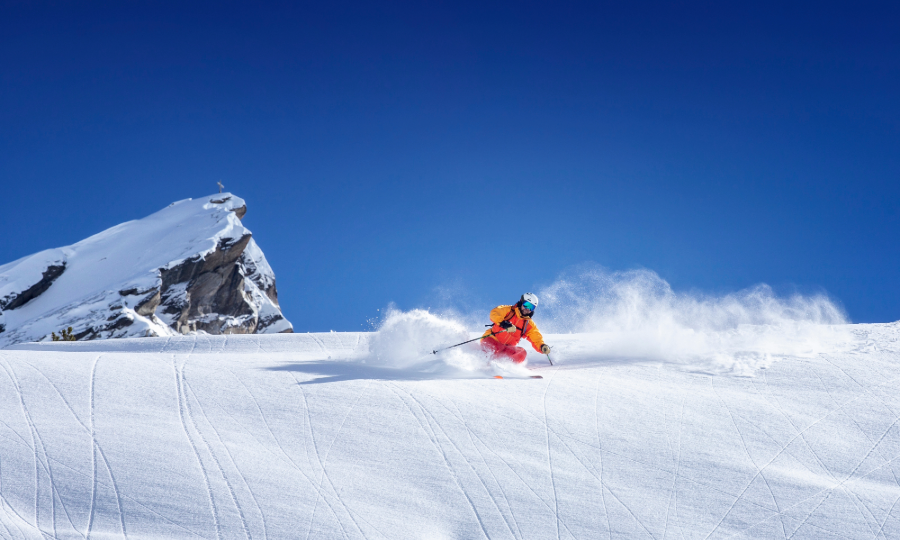
How to plan a ski seminar
Organizing a seminar in the mountains is much more than a simple business trip. It’s a unique opportunity to bring teams together in an inspiring setting that fosters cohesion and fresh perspectives. Forget the standard meeting rooms or city hotels: here, brainstorming happens by the fireplace, debriefs take place on a ski lift, and bonds are built on snowy slopes. A ski seminar is the perfect balance between productive work sessions and a breath of fresh air. But to make it a success, it takes more than booking a chalet: logistics, budget, activities… everything needs to be carefully planned.
👉 Discover all our venues for mountain seminars
🏔 Why the mountains are an ideal setting for your seminars
Choosing the mountains for a corporate seminar means offering your team a real break. Far from daily stress, office noise or the urban routine, the mountains invite people to disconnect and get creative. A simple change of scenery can be enough to spark conversations, strengthen connections, and bring new ideas to life. The atmosphere is more relaxed, interactions more natural, and participant engagement often higher.
Alpine skiing, snowshoe hikes, dog sledding or fondue dinners by the fire… these shared moments create lasting memories that strengthen company culture. It’s also a powerful tool for motivation and retention, especially for younger generations who value meaningful and authentic experiences at work.
👉 Find out more about why organizing a mountain seminar is a good idea
💸 How much does a ski seminar cost? Plan and adapt your budget
Budgeting is one of the most sensitive aspects when planning a seminar in the mountains. On average, expect to spend between €350 and €750 per person for a two-day stay including accommodation, meals, meeting room, ski passes, and group activities. The price naturally depends on the standard of the chosen venue, the number of participants, the season (avoid school holidays!), and the location.
Some resorts offer excellent value for money, with quality services without the sky-high prices of major international destinations. Opting for “all-in-one” accommodations is also smart: private chalets or hotels with meeting rooms, on-site catering, and partnerships with local providers. This helps control hidden costs and makes coordination easier. Don’t forget to include a small contingency budget for unexpected expenses, such as weather changes or last-minute requests.
👉 Discover our curated collection of mountain getaways
🚐 Logistics: how to organize a smooth seminar
The success of a ski seminar relies heavily on well-thought-out logistics. The choice of resort is crucial: it should be accessible (train or direct shuttle if possible), provide group-friendly lodging, and strike a balance between comfort, work, and leisure. Resorts such as La Clusaz, Chamonix, Serre-Chevalier, or Les Gets are particularly suited to this kind of event.
On site, your venue should have all the necessary professional equipment: reliable Wi-Fi, projectors, and sometimes even video conferencing tools. For accommodation, prioritize a welcoming setting with comfortable rooms and common areas for informal exchanges. The atmosphere of a mountain chalet or a hotel with panoramic views can make all the difference.
For transportation, centralization is key. Organizing a group train trip with a shuttle upon arrival saves time, reduces delays, and even builds team spirit from the start. Be sure to provide participants with a clear schedule, timetables, and a checklist so they arrive stress-free.
🤝 Snow activities: a unique opportunity to create bonds
Skiing is, of course, the main attraction in the mountains, but a seminar is much more than hitting the slopes. This natural playground also allows you to organize a wide variety of activities, suitable for all profiles, whether sporty or not.
Some ideas that always work:
- Snowshoe orienteering races
- Igloo building or survival games
- Night-time sledding or après-ski parties
- Dog sledding or guided snow hikes
- Fondue or raclette evenings in a mountain inn
Mix things up: combine physical activities with relaxation (spa, hammam, yoga) and free time, so everyone can enjoy the seminar at their own pace. The key is to create a balance between stimulation, enjoyment, and individual well-being.
👉 Discover the Best Team Building Activities to Do in the Mountains
✅ Best practices for a successful ski seminar
Organizing a seminar in the mountains also means taking into account the specific challenges of this type of destination. To make it a success, here are some golden rules:
- Plan an adaptable schedule, with activities for everyone (not everyone skis!)
- Include downtime between highlights: the setting encourages slowing down—take advantage of it
- Communicate beforehand: detailed program, equipment to bring, weather updates, useful numbers…
- Focus on conviviality and simplicity rather than cramming too many activities
- Capture memories (photos, videos) and send a thank-you note after the event ✨
🧠 Bonus tip: involve your teams in designing the program. It boosts their motivation… and increases the chances of success.
👉 Discover 5 common mistakes to avoid when organizing a corporate seminar in the mountains.
**👉 Looking for tailored recommendations? Contact us | Native Spaces **